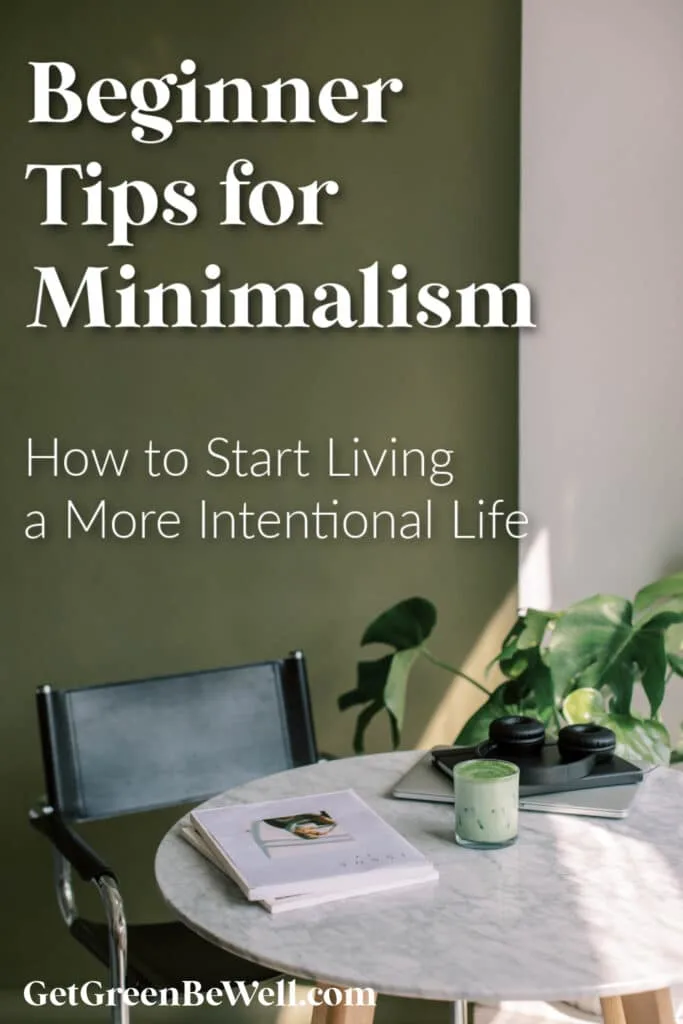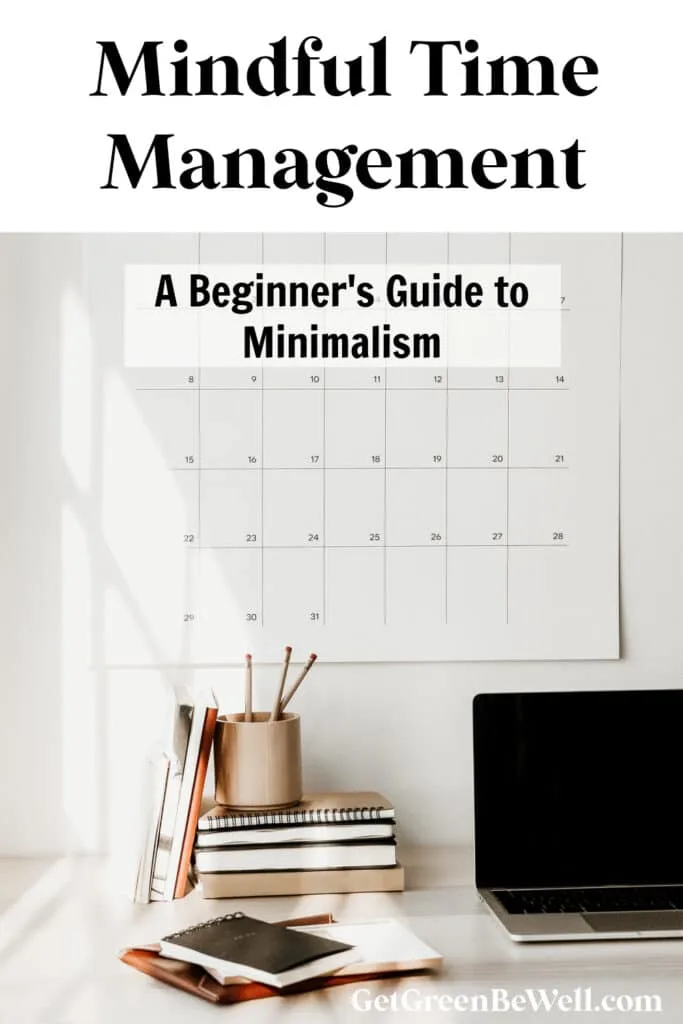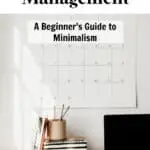If you are overwhelmed with clutter in your home and constant organizing, you are probably ready to start taking some baby steps towards a minimalist lifestyle. Living a more intentional life can be exhilarating but also confusing as you try to change your mindset while also adapting simple living techniques to your unique needs.
These beginner tips for minimalism will help you get started on your path to a simple, streamlined life with a promise of less stress and more joy.
Define Your Why
Before diving headfirst into minimalism, take a moment to reflect on why you want to adopt this lifestyle. Your motivations will guide your decisions and help you stay committed when challenges arise.
Whether it is to reduce stress, find more time for meaningful experiences, or simply declutter your living space, having a clear purpose will keep you on track.

Start Small
Minimalism is not an all-or-nothing concept. Begin by identifying one area of your life that could benefit from simplification. It could be your wardrobe, your digital space, or even your schedule.
Starting small with easy minimalist habits allows you to ease into the process, making it more manageable and less overwhelming.
Declutter Mindfully
One of the core concepts of minimalism is decluttering, but it is essential to approach this process with mindfulness.
Instead of mindlessly discarding items, consider each possession’s value and purpose in your life. Ask yourself if an item brings you joy or serves a practical purpose. If the answer is no, it might be time to let go.
See our 30 Day Declutter Plan for a Healthy Home for a helpful guide to cleaning your space while also detoxing your living environment.
Quality Over Quantity
In a consumer-driven society, the idea of having more is often equated with success. However, minimalism shifts the focus from quantity to quality.
Invest in well-made, durable items that serve a purpose and bring you long-term satisfaction.
Quality over quantity not only reduces clutter but also fosters a sense of appreciation for the things you own.
Digital Decluttering
In the age of technology, a significant aspect of minimalism involves digital decluttering.
Sort through your emails, files, and apps, keeping only what is essential. Unsubscribe from newsletters that no longer interest you, organize your digital files, and consider a social media detox.
By simplifying your digital life, you’ll experience increased focus and reduced digital overwhelm.

Mindful Consumption
Minimalism isn’t just about getting rid of things it is about being mindful of what you bring into your life. Before making a purchase, ask yourself if the item is truly necessary.
Consider the environmental impact, the value it adds to your life, and whether it aligns with your long-term goals.
By adopting a more intentional approach to consumption, you will reduce the influx of unnecessary possessions.
Related Post: Minimalist Kitchen Essentials List (Everything You Need, Nothing You Don’t)
Create Space for Experiences
As you declutter your physical and digital spaces, create room for experiences that truly matter. Minimalism is not just about minimizing possessions, it is about maximizing life.
Create time and space for activities that bring joy, fulfillment, and meaningful connections with others.
Creating core memories with experiences is one of the best gifts for minimalists.
Embrace the Power of No
Learning to say no is a crucial aspect of minimalism. In a world filled with distractions and commitments, saying yes to everything can lead to overwhelm and burnout.
Assess your priorities and be selective about the activities and responsibilities you take on. Embracing the power of no allows you to focus on what truly matters and prevents unnecessary clutter in your schedule.
Practice Gratitude
Gratitude is a cornerstone of the minimalist lifestyle. Take time each day to reflect on the things you are grateful for.
Cultivating a mindset of gratitude shifts your focus from what you lack to what you have, fostering contentment and satisfaction with a simpler life.
Mindful Time Management
Minimalism extends beyond physical possessions and into the realm of time management. Streamline your schedule by prioritizing tasks that align with your values and long-term goals.
Identify time-wasting activities and replace them with activities that contribute to personal growth, well-being, and overall happiness.

Invest in Experiences Over Things
Rather than accumulating material possessions, focus on accumulating experiences. Experiences create lasting memories and contribute to a more fulfilling life.
Whether it is traveling, learning a new skill, or spending quality time with loved ones, investing in experiences enriches your life in ways that material possessions cannot.
Related Post: Minimalism Vs. Maximalism
Practice the One In, One Out Rule
To maintain a minimalist lifestyle over the long term, consider adopting the one-in, one-out rule. For every new item you bring into your life, let go of one existing item.
This practice helps prevent the re-accumulation of clutter and encourages a more conscious approach to consumption.
Want more ideas for simplifying your life? Check out these guides next:
